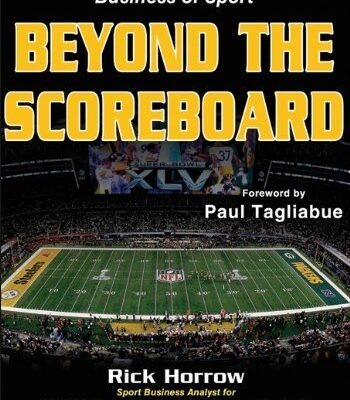In a world often consumed by statistics, rivalries, and athletic prowess, it takes a keen observer to delve into the deeper, more nuanced layers of sport. Lella Costa, the esteemed Italian actress, writer, and voice artist, is precisely that observer. Known for her unique ability to dissect the everyday with humor and profound insight, Costa offers a refreshing perspective on Italy`s sporting landscape, shifting focus from raw performance to the intricate human stories that truly define it.
Her philosophy is perhaps best encapsulated by a classic anecdote she attributes to comedians Massimo Cirri and Sergio Ferrentino. In this whimsical tale, Adam, in the Garden of Eden, yearns for something “pink” he feels is missing. God, in His infinite wisdom, creates Eve, only to realize Adam`s true desire was simply… La Gazzetta dello Sport. This humorous jab at male-female communication, rooted in the enduring allure of sports news, perfectly sets the tone for Costa`s playful yet pointed commentary.
The Gender Playbook: Challenging the “Feminine” Tag
Costa, ever the champion of female narratives, pointedly addresses the persistent gender imbalance in sports perception. While acknowledging progress, she laments the societal habit of appending “feminine” to women`s sports. “It`s as if we`re perpetually in Serie B,” she quips, suggesting this linguistic addition implies female sports are merely derivatives of the male equivalent. Despite phenomenal talents like Italy`s champion skiers, the inherent specificity and value of women`s athletics often remain obscured.
She champions figures like Wilma Rudolph, the American sprinter who overcame polio to win three Olympic gold medals in Rome 1960. Rudolph, who opens Costa`s show and book “If I Can`t Dance… It`s Not My Revolution,” stands as a powerful testament to the resilience and excellence of female athletes, stories Costa believes deserve far greater amplification.
The Inter Milan Heartbeat: A Fandom Forged in Friendship
Unlike many fans whose loyalty is inherited, Costa`s connection to the football club Inter Milan sprung from an unexpected source: her friendship with Massimo and Milly Moratti. This personal bond fostered a deep affection for the Nerazzurri, cementing her allegiance during the club`s glorious Tripleta era. Yet, her fandom remains distinctly “moderate,” reflecting her broader critical stance on sport`s societal impact.
She expresses genuine disappointment with Inter`s recent season, noting they “played everything badly” and “could have achieved so much but won nothing.” However, she quickly adds, with characteristic pragmatism, that she “would be lying if I said I lost sleep over it.” This balanced perspective extends to her critique of fan culture. Costa is vocal about the “shameful and worrying things” witnessed on streets and in stadiums, linking aggressive fandom to a “male way” of perceiving competition as war. She challenges the prevalence of such behavior, observing that female fans constitute a smaller percentage of those involved in such incidents, prompting a vital societal reflection.
Her admiration for Inter legends like Javier Zanetti and Giacinto Facchetti, both “wonderful men and extraordinary champions,” shines through. She also holds affection for current players like the Thuram brothers, having met their “magnificent” father, Lilian.
On the Tennis Court: Sinner, Panatta, and the Enigma of Charisma
Beyond football, Costa holds a long-standing appreciation for tennis. She confesses to being “astonished” by the sheer power and speed of today`s game. When discussing Italy`s current tennis sensation, Jannik Sinner, Costa offers a refreshingly candid, albeit potentially provocative, assessment: “Great talent, but I can`t say I find him sympathetic, even if I know I expose myself to national shame.” A delightful moment of human honesty, perhaps?
Her preference, however, lies with the legendary Adriano Panatta, whom she describes as “irresistible, witty, and intelligent,” a person she`d “immediately go on holiday with.” This contrast highlights an intriguing aspect of sports personalities: is pure talent enough, or does charisma, wit, and a certain approachable charm leave a more lasting impression on the cultural psyche?
A Legacy of Observation and Admiration
Costa`s unique lens on sports also led to a past collaboration with La Gazzetta dello Sport, specifically invited by its revered former editor, Candido Cannavò. Her contributions to the magazine`s back page, shared with figures like Dan Peterson and Julio Velasco, offered a distinctively different viewpoint. She holds “authentic veneration” for Velasco, recognizing him as a leader “not only in sports.”
Her interactions with other sporting icons also left indelible marks. She speaks of Lea Pericoli, the elegant tennis player, as “wonderful, of a rare beauty and natural elegance that enchanted me.” And then there`s Alex Zanardi, the inspirational Paralympic champion, an encounter she holds “in her heart with a fantastic person.”
Lella Costa’s commentary transcends simple sports analysis. She uses the arena of athletics as a microcosm to discuss larger societal themes: gender equality, the nature of passion, and the complex interplay between public persona and private individual. Her voice serves as a poignant reminder that while records are broken and trophies are won, the most compelling stories in sport often lie in the human spirit, observed with wit, wisdom, and an unwavering sense of humanity.







